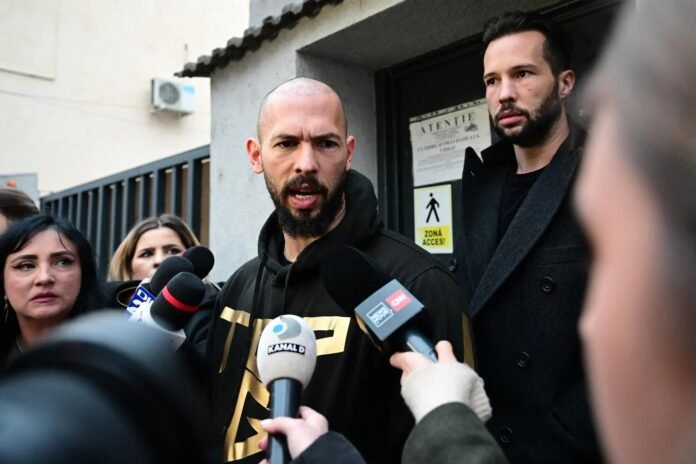Leaked Videos from Andrew Tate’s "The War Room": A Deep Dive into Controversial Tactics
The recent leak of videos from Andrew Tate’s exclusive group, "The War Room," has sent shockwaves through social media and beyond. This incident marks yet another chapter in a series of damaging cybersecurity breaches that have plagued the controversial figure. The leaked content, obtained by hackers, exposes tactics promoted by Tate and his associates aimed at manipulating and controlling women, providing a rare glimpse into the inner workings of his $8,000-a-year subscription network.
The Nature of the Leak
According to reports from various sources, including The Daily Dot, the leaked videos showcase a staggering 75 clips featuring members engaged in exclusive activities such as luxury dining, resort stays, and private lectures led by Tate himself. This revelation comes on the heels of a significant breach of "The Real World," Tate’s online university, which exposed the personal data of nearly 800,000 users just a month prior. The hackers, identifying themselves as hacktivists, infiltrated the platform’s databases, accessing usernames, email addresses, and private chat logs. They criticized the platform’s security as "hilariously insecure," framing their actions as a challenge to Tate’s controversial teachings and a call for better user data protection.
Inside "The War Room"
The leaked videos from "The War Room" provide a disturbing insight into the strategies that Tate and his associates advocate. In one particularly alarming segment, Tate, alongside adult film star Stirling Cooper and self-described "alpha mentor" Justin Waller, instructs men on how to isolate women from their social circles. Tate emphasizes the importance of keeping women away from friends and family who might encourage them to leave, stating, "It’s in your best interest to keep her away from that social circle." This chilling advice raises ethical questions about the manipulation tactics employed within the group.
Waller further complicates the narrative by suggesting that women who resist such manipulation should be demoted in their relationship status, referring to them derogatorily as the "bottom hoe." Tate rationalizes these tactics by claiming, "People will call it manipulation. But what you’re really doing is putting the pieces on the chess board in the best place for you to win." This perspective not only normalizes manipulative behavior but also frames it as a strategic game, further emphasizing the troubling mindset that permeates the group.
Employment and Control
Another segment of the leaked content reveals Tate’s views on women’s employment, arguing that traditional jobs provide them with a support network and expose them to other men. He asserts that women’s mental energy should be dedicated solely to their partner, implying that any external engagements dilute their focus. This perspective not only undermines women’s autonomy but also perpetuates a harmful narrative that seeks to control their lives and choices.
Broader Implications of the Breach
The leak from "The War Room" builds upon the earlier breach of "The Real World," expanding the scope of exposure from user data to internal content. For Tate’s platforms, the consequences extend beyond mere reputational damage. These breaches not only expose the personal information of users but also reveal the inner workings of his high-ticket programs, raising ethical and legal questions about the practices promoted within. As scrutiny mounts, these incidents underscore the critical importance of robust cybersecurity measures to protect sensitive data and maintain trust in digital services.
Conclusion
The recent leaks from Andrew Tate’s "The War Room" serve as a stark reminder of the potential dangers associated with online platforms that promote manipulative and controlling behaviors. As the fallout continues, it is imperative for users to remain vigilant about their personal data and the ethical implications of the content they engage with. The need for stronger cybersecurity measures has never been more apparent, as the digital landscape becomes increasingly fraught with risks. A request for comment from Andrew Tate’s "The Real World" has been made, but a response has yet to be provided, leaving many to wonder about the future of his controversial empire.

